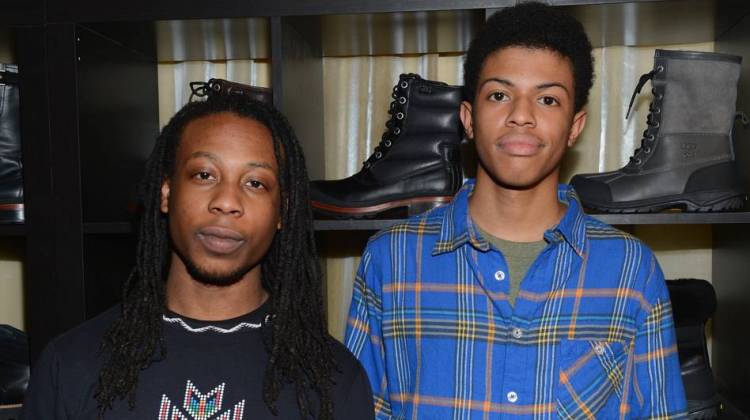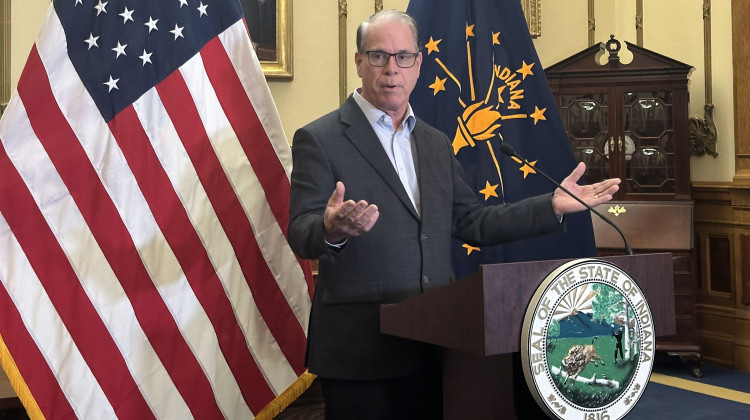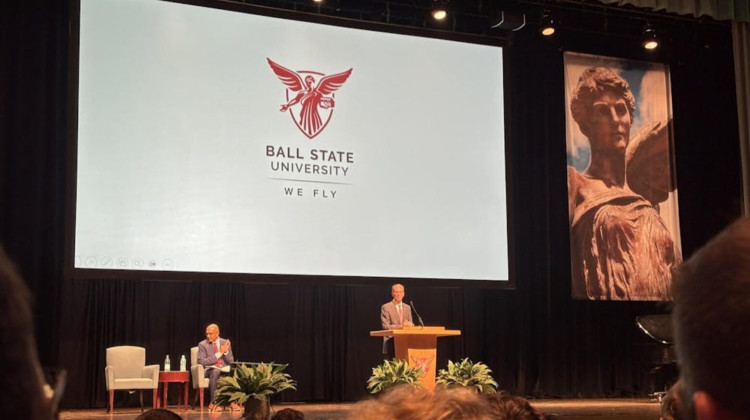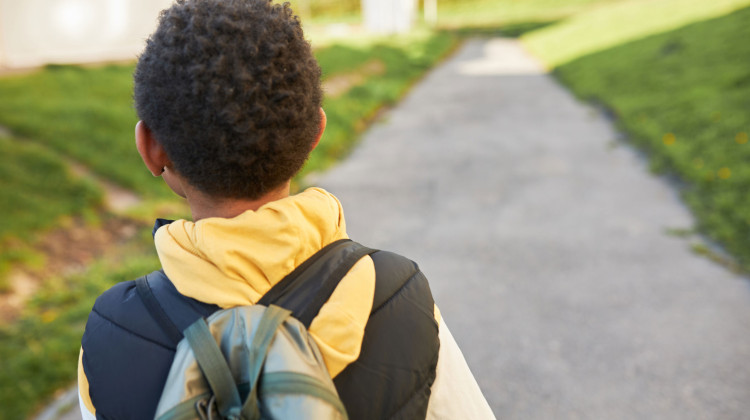Monday evening, PBS will air "American Promise," a documentary that traces the lives of two African-American students for 13 years. They both enroll as kindergarteners at The Dalton School, an elite private day school in New York City that says it's making a commitment to diversity.
In the beginning of "American Promise," filmmakers Michèle Stephenson and Joe Brewster set out to chronicle the complete pre-collegiate education of their son Idris and his best friend, Seun Summers. But as time goes on, things become complicated.
Seun's father, Tony Summers, worries about Dalton's ethnic composition — it's about 75 percent white.
"I've been the only black child in the classroom," says Tony. "Wasn't a pleasant thing, back then."
He hopes time has changed that– and as the film shows, in some ways, it has. In the early grades, Both Idris and Seun did well and enjoyed school. Back when interviewed at the age of five, Seun appeared delighted to be at Dalton.
"I love being at Dalton because it's my favorite school now, and it's always my best school, and I love it there," he said then.
But just a few years later Seun is no longer thrilled about attending Dalton.
"I hate school," he said. "It's bad, it's hard and I'm in the sixth grade."
So what happened in between? For one thing, explains a Dalton administrator, expectations increase.
As the film progresses, we see it's not just academics that can be challenging, but issues of race and class. Idris, in a candid conversation with his dad, Joe Brewster, a Harvard and Stanford-educated psychiatrist, a devastating question.
"I bet if I were white, I'd be better off," says Idris. "Isn't that true?"
Idris is treading a fine line between two vastly different communities — the one at Dalton, and the one in his neighborhood:
"Sometimes I change my voice, where I go 'hey y'all what's up,'" says Idris. "And I don't talk like I talk at Dalton so they won't make fun of me."
Two paths
The boys' paths diverge in high school. Sean is very bright, but Dalton's academic demands and his learning style were not a good match, says Libby Hixson, then-head of the middle school.
"This is a high energy, fast-turnover, a lot of volume, a lot of ownership," says Hixson. "A lot of things happening at the same time."
Seun transfers to Benjamin Banneker Academy, a mostly-black public school devoted to demanding academics and cultural affirmation. Idris continues at Dalton.
Parents of the school's black sixth grade boys gather at the Brewsters' house for mutual support. One ponders if the tradeoff they're making has other costs.
"We put our children in this environment, and if they are seeing this now, what perception are they having of themselves?" she says. "Is this something that's going to help them in the future, or hinder them?"
That jury's still out. Filmmaker Michèle Stephenson says part of the reason she wanted to make "American Promise" was to correct what she says are implicit assumptions built around black boys.
"Around their ability to learn," says Stephenson. "Around expectations and impressions of them being, perhaps, a little more dangerous than others"
This increasing diversity, she says, is a good, but not final step.
"Diversity is not enough," she says. "There are biases that come along with that diversity that need to be unpacked and dismantled."
She turned the camera on her family and the Summers so other black families might learn from their experiences.
9(MDEwMDc1MzM3MDEzNDczOTA0MDc1MzViMQ001))
 DONATE
DONATE








 Support WFYI. We can't do it without you.
Support WFYI. We can't do it without you.